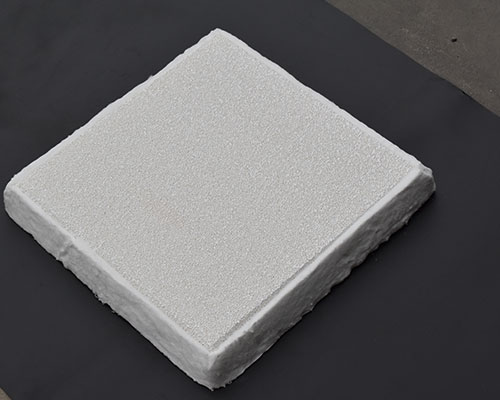Foam Ceramic Filter Jsc Aluminium is manufactured on the basis of a carrier with a fixed network structure and organic Foam cells for the filtration and purification of liquid Aluminium.
The foam filter is mixed into the thixotropic alumina slurry through an automatic production line, and the slurry is uniformly deposited on the foam skeleton of the carrier after drying and curing. It is then fired at a high temperature of 1180°C to form the final product.
Aluminum is very light reflective, reflecting ultraviolet rays more strongly than silver. The purer the aluminum, the better its reflectivity. Vacuum aluminum plating is widely used in the manufacture of high quality mirrors. Vacuum aluminum plating
The combination of this film with polysilicon film makes a cheap and lightweight solar cell material. Aluminum powder can maintain silvery luster, widely used in manufacturing coatings, commonly known as silver powder.
Foam Ceramic Filter Jsc Aluminium is used to Filter impurities in molten Aluminium alloy, helping to meet the production requirements of high quality precision castings made from high-tech Aluminium alloy such as computer hard disks, PS substrate. Used for printing, preservation of materials, turbojet fan blades, etc.

Ceramic foam filters can remove large numbers of such inclusions from molten aluminum. Foam ceramic filtration technology has become the main filtration method for commercial aluminum alloy in the world.
Because of its low installation and operating costs and ease of use, the technology is rapidly expanding to aluminum casting workshops of all types and levels of complexity.
Over the years, it has been steadily moving towards the use of finer pore ceramic foam filters to provide higher melt cleanliness, a requirement for the ever-improving quality of aluminum processed products.
For example, in the case of aluminum tank plate applications, 40 and 50 PPI foam filters are now commonly used in plate production.
In addition, finer pore filters are currently being evaluated.
However, the use of finer pore filters requires extensive pre-treatment to reduce the level of inclusions and prevent the filter from being prematurely clogged or blocked by residual inclusions.
The presence of solid particles such as oxides, carbides, nitrides and borax compounds in metals such as aluminum, as well as insoluble inclusions in liquids such as molten salts, can significantly affect the plasticity and final surface quality of the metal during rolling or extrusion deformation.

